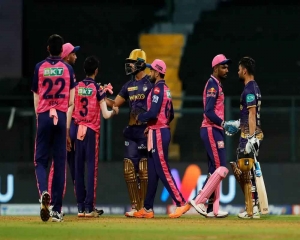People with severe mental disorders (SMD) of biopolar, moderate to severe depression and other psychotic disorders not only have to battle with their mental conditions but also non-communicable and communicable diseases such as diabetes and tuberculosis cutting their life expectancy by 10-20 years when compared to general population.
Coming to the rescue of this hapless and helpless sector, the World Health Organisation (WHO) has issued for the first time "Guidelines on management of physical health conditions in adults with severe mental disorders" that aims to help health workers to how to lookout and manage co-morbid physical and mental health conditions among such patients.
The majority of these early deaths are due to physical health conditions like diabetes, tuberculosis and cardiovascular diseases. "As the physical health of people with SMD is commonly overlooked, not only by themselves and people around them, but also by health systems, they suffer from crucial physical health disparities and limited access to health services.
"Many lives can be saved by ensuring that people with SMD receive treatment," the WHO said in a statement here recently while releasing the guidelines recently for managing physical health conditions of such people.
The recommendations have come at a time when India is witnessing sharp increase in mental health disorders. An estimated 150 million people across India are in need of mental health care interventions, both short and long-term, according to India's latest National Mental Health Survey 2015-16. The survey, which was carried out across 12 states, found that the overall prevalence for current mental health morbidity was 10.6 percent.
The WHO guidelines include recommendations on healthy lifestyle behaviors such as healthier diet, more physical activity and tobacco cessation, psychosocial support and considering possible interactions between different medications prescribed for mental and physical health conditions.
"The majority of deaths amongst people with SMD are attributable to physical health conditions, both non-communicable and communicable," said Graham Thornicroft, Chair of the guideline developmental group and Professor of Community Psychiatry at King's College London, and colleagues wrote in the WHO executive summary.
"Unfortunately, such people often lack access to health services or receive poor quality care, including promotion and prevention, screening and treatment. It is crucial to address the disparities in health care access and provision for people with such condition," they said.
In India, poor awareness about the symptoms of mental illness, stigma and the lack of mental health services available has led to treatment gap, with insufficient numbers of trained mental health care professionals. The survey by the National Institute of Mental Health and Neuro-Sciences (NIMHANS) found that, depending on the state, between 70 and 92 percent of those in need of mental health care failed to receive any treatment.

























